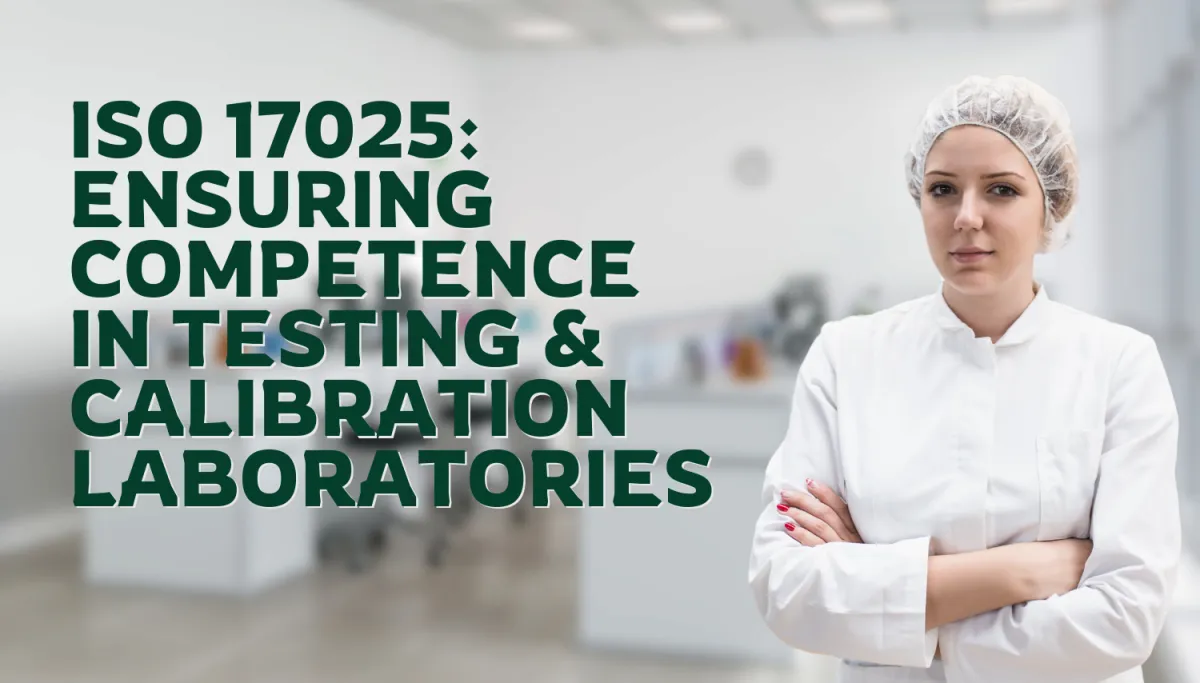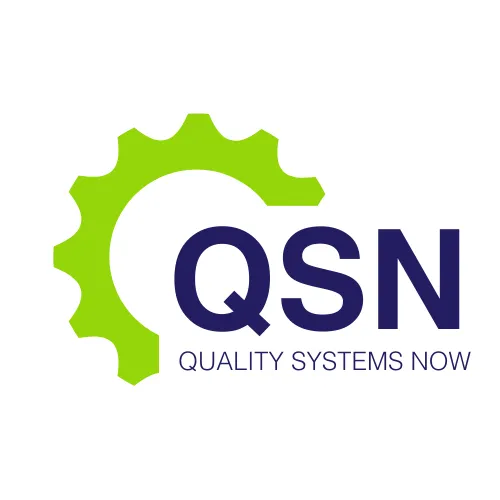LATEST NEWS

ISO 17025: Ensuring Competence in Testing and Calibration Laboratories
Introduction
ISO 17025 is an international standard that specifies the general requirements for the competence, impartiality, and consistent operation of testing and calibration laboratories. Originally published in 1999 by the International Organization for Standardization (ISO) and the International Electrotechnical Commission (IEC), ISO 17025 is applicable to all organizations performing laboratory activities, regardless of the number of personnel.
Do you need professional support to implement ISO 17025 in your organisation?
This standard is crucial for ensuring the accuracy and reliability of laboratory results, which underpin decision-making in fields such as healthcare, clinical trials, environmental monitoring, manufacturing, and research.
Historical Context and Evolution
The first version of ISO 17025 was developed to align with the quality system requirements of ISO 9001, reflecting the growing need for rigorous laboratory quality management. The most recent version, ISO/IEC 17025:2017, introduces a risk-based approach to operations, incorporates the latest quality management system concepts, and enhances compatibility with other standards, such as ISO 9001:2015. This revision focuses on technical competence and the ability to produce valid results consistently.
Core Requirements of ISO 17025
ISO 17025 is divided into two main sections: management requirements and technical requirements. Together, these ensure that laboratories operate competently and generate valid results.
Management Requirements:
Organizational Structure: Laboratories must have a clear organizational structure that defines roles, responsibilities, and authorities.
Document Control: Procedures must be in place to control documents and records, ensuring that only current versions are used and obsolete versions are properly archived.
Management System: A management system must be implemented, covering aspects such as internal audits, management reviews, and corrective and preventive actions.
Technical Requirements:
Personnel Competence: Staff must be competent based on appropriate education, training, experience, and demonstrated skills.
Facilities and Environmental Conditions: The laboratory environment must not adversely affect the quality of results, with appropriate controls in place.
Method Validation: Laboratory methods must be validated to ensure they are fit for their intended use.
Equipment Calibration and Maintenance: Equipment must be properly calibrated and maintained to ensure accurate measurements.
Measurement Traceability: Results must be traceable to national or international standards.
Sampling and Handling: Proper procedures for sample handling, storage, and transportation must be followed to ensure integrity.
Data Management: Laboratories must manage data to ensure accuracy, confidentiality, and integrity.
Risk Management in ISO 17025
The 2017 revision of ISO 17025 emphasizes a risk-based approach to laboratory management. This approach requires laboratories to identify and manage risks to ensure the reliability of their results. Key elements include:
Risk Identification: Identifying potential risks that could impact the validity of test or calibration results.
Risk Assessment: Evaluating the likelihood and potential impact of identified risks.
Risk Control: Implementing measures to mitigate or eliminate risks.
Risk Monitoring: Continuously monitoring and reviewing risks and control measures to ensure their effectiveness.
By integrating risk management into their operations, laboratories can proactively address potential issues, improving the reliability and credibility of their results.
Benefits of ISO 17025 Accreditation
Achieving ISO 17025 accreditation offers several significant benefits for laboratories:
Increased Credibility and Recognition:
Accreditation provides independent verification of a laboratory's competence, enhancing its reputation and credibility with clients, regulatory bodies, and other stakeholders.
Accredited laboratories are often recognized internationally, facilitating cooperation and acceptance of results across borders.
Improved Quality and Reliability:
Implementing ISO 17025 helps laboratories establish robust quality management systems, leading to more reliable and accurate results.
Continuous improvement processes ensure that laboratories can identify and rectify issues promptly, maintaining high standards of quality.
Regulatory Compliance:
Many regulatory and industry bodies require ISO 17025 accreditation for laboratories providing testing and calibration services.
Accreditation ensures compliance with relevant regulatory requirements, reducing the risk of non-compliance and associated penalties.
Operational Efficiency:
Standardized procedures and processes improve operational efficiency, reducing errors and rework.
Effective data management and traceability systems enhance productivity and reduce costs.
Market Access and Competitive Advantage:
Accredited laboratories have a competitive edge in the marketplace, as clients prefer working with organizations that demonstrate proven competence.
Accreditation can open doors to new business opportunities and markets, driving growth and expansion.
Implementation Challenges
While the benefits of ISO 17025 accreditation are substantial, implementing the standard can present challenges, particularly for smaller laboratories. Common challenges include:
Resource Constraints: Developing and maintaining a robust management system can require significant time and resources.
Training and Competence: Ensuring that all personnel are adequately trained and competent can be demanding.
Documentation and Record-Keeping: Establishing comprehensive documentation and record-keeping systems can be complex and time-consuming.
Continuous Improvement: Maintaining a culture of continuous improvement requires ongoing commitment and effort from all levels of the organization.
To address these challenges, laboratories often seek external consultancy and training services to guide them through the accreditation process and ensure compliance.
Conclusion
ISO 17025 is a critical standard for testing and calibration laboratories, ensuring their competence, impartiality, and consistent operation. By adhering to ISO 17025, laboratories can enhance the reliability and credibility of their results, comply with regulatory requirements, and gain a competitive advantage in the marketplace. Talk to us today to learn more about how we can help you in the process.
